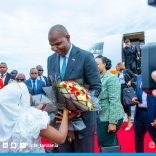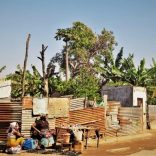Mozambique: President Chapo pays working visit to Zambia
Instability in Mozambique could lead to disbelief in the political system – Luís de Brito

Lusa
The director of the Institute of Economic and Social Studies of Mozambique warned on Wednesday that the instability in the country may reduce electoral turnout, as Mozambicans begin to have doubts about their political system.
“The conflict in general may discourage people from participating in elections,” Luis de Brito told the press at an Institute of Social and Economic Studies seminar on electoral participation.
De Brito says lack of participation in Mozambican elections reveals a crisis of citizenship, with consequences for the legitimacy of power.
“If abstention is structural, as is here the case, the political system is weakened,” he says, adding that the state’s inability to meet the basic needs of the people is another factor contributing to the lack of trust in political institutions.
Pointing to high levels of illiteracy as a factor in some parts of the country, the researcher said that one needs to look at local history to understand the real causes of the problem.
“We always have to look at the local context to understand citizens’ actual voting behaviour,” de Brito says, suggesting a different analysis for each part of the country.
According to de Brito’s research, apart from women, Mozambicans between 18 and 24 are most likely not to bother voting in elections, which points to the need to intensify awareness programs in schools.
“The awareness of this group may be a first step, but we must not think of it as a solution. It must be accompanied by other things, like the strengthening of state institutions,” the researcher suggests.
Electoral abstention levels in Mozambique have remained higher than expected since the 2004 elections, when they registered 64 percent. Official figures for the 2014 general elections indicate abstention rates of 51.51 and 51.36 percent for parliamentary and the presidential votes respectively.
The electoral process in Mozambique has been the target of criticism, with opposition parties and international observers reporting irregularities in polls won mostly by the party in power for 40 years, the Mozambique Liberation Front (Frelimo).
The current political and military crisis stems from the refusal of the Mozambican National Resistance (Renamo), the largest opposition party, to accept the results of the last general elections, accusing Frelimo of having manipulated the elections and threatening to seize power in the six provinces where it claims electoral victory.













Leave a Reply
Be the First to Comment!
You must be logged in to post a comment.
You must be logged in to post a comment.